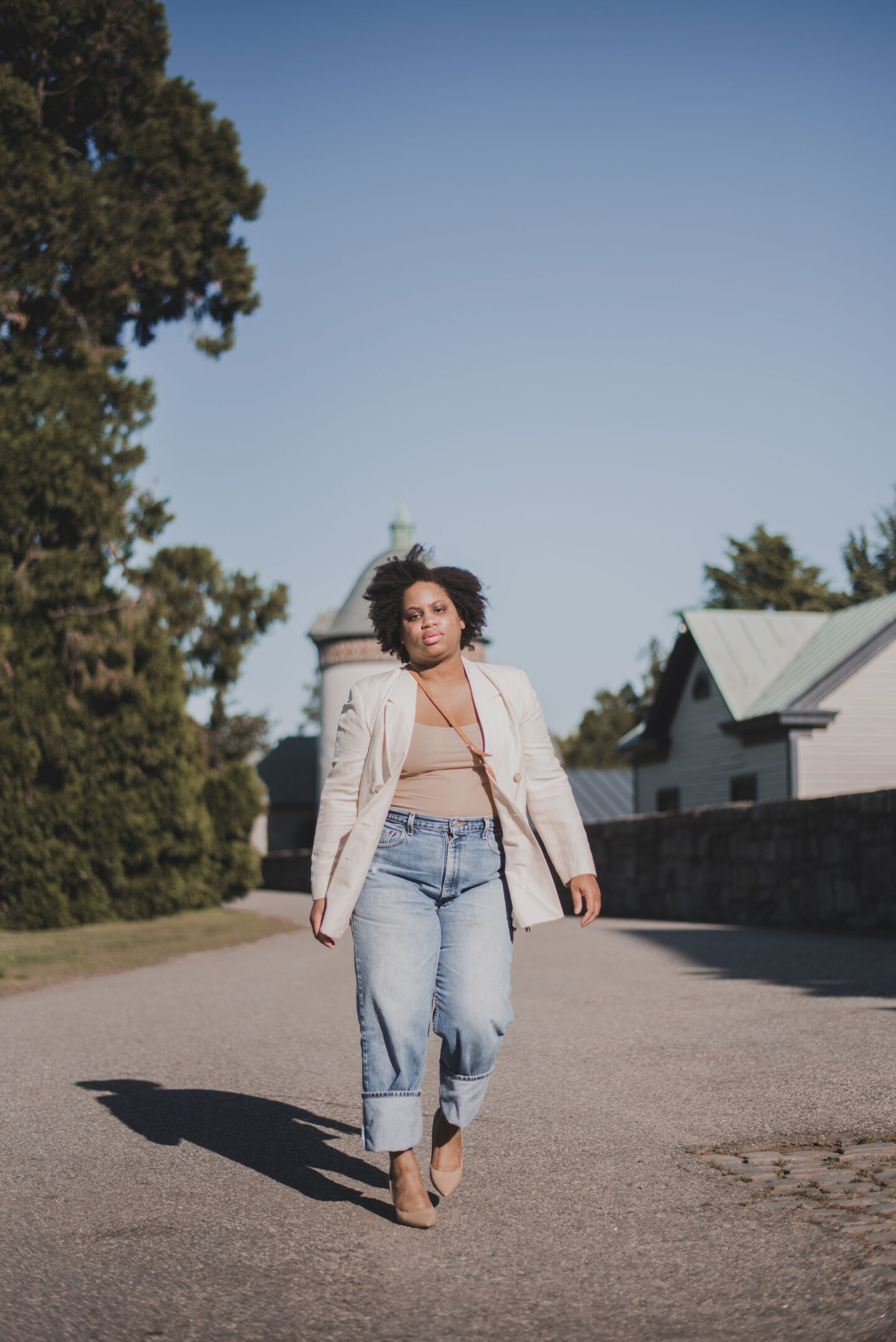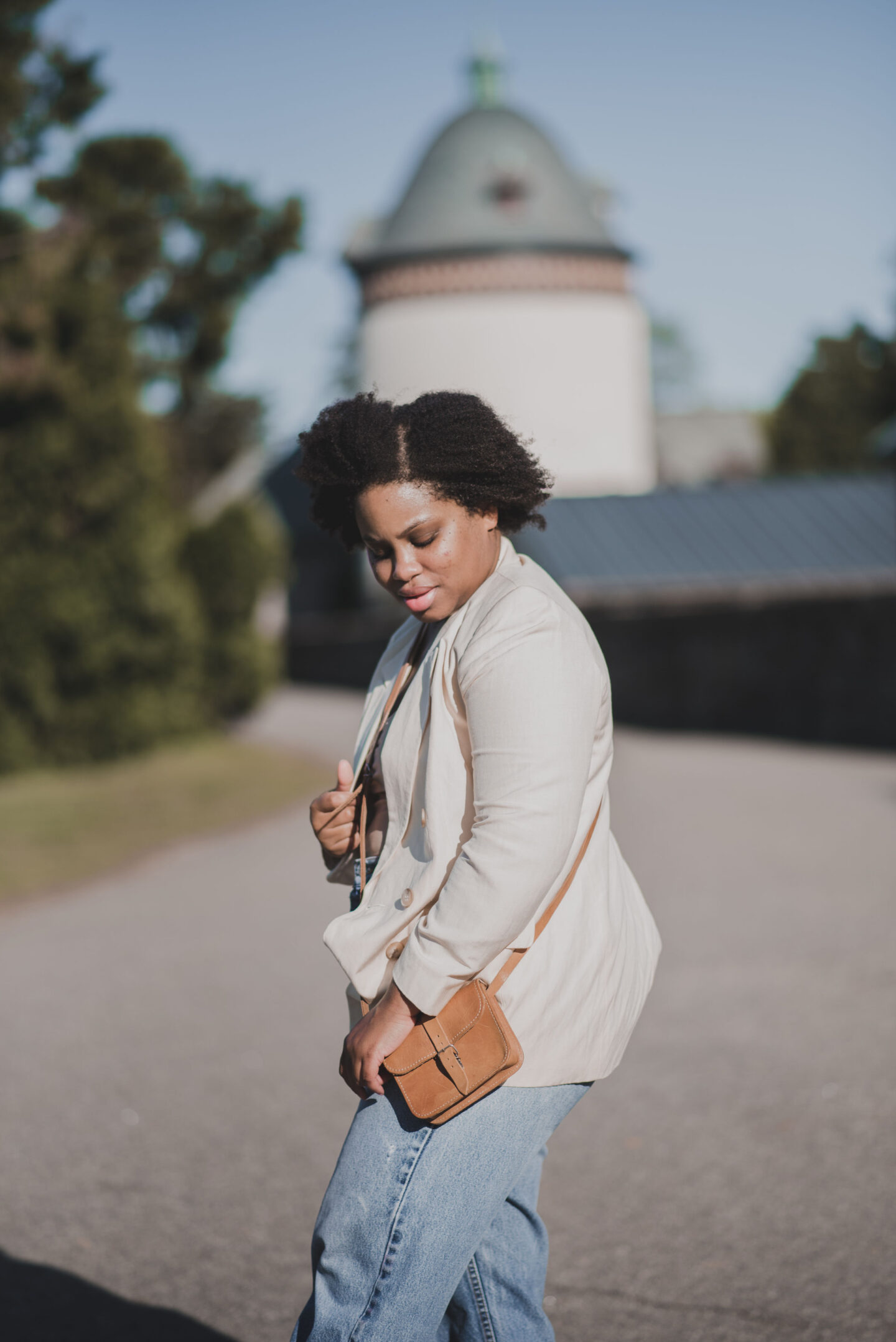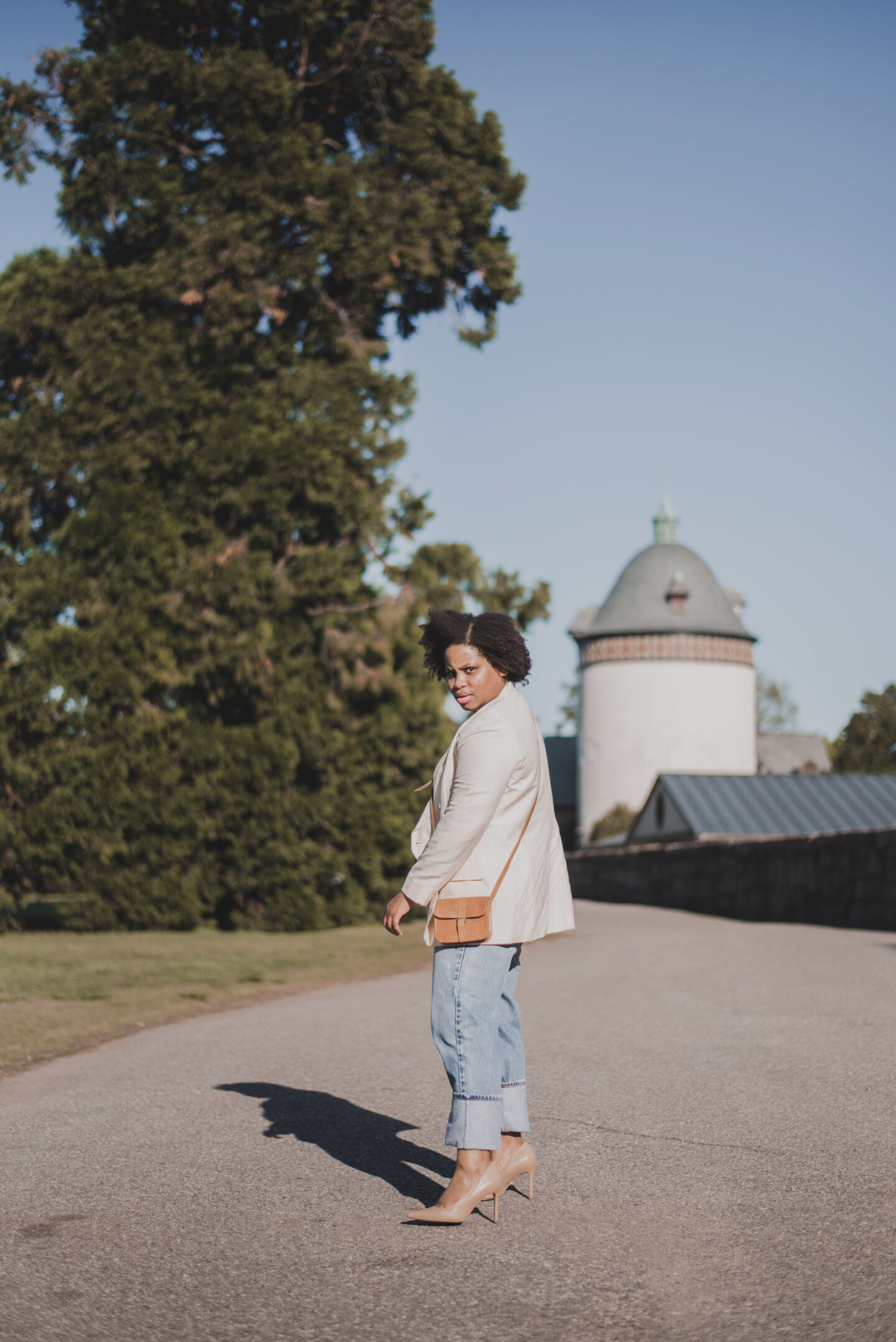
So here we are.
5 million views and a comment section filled with differing opinions later.
My opinion on this was one I’ve sat with for a while and I honestly didn’t think my little IG REEL would get a ton of traction and for sure didn’t think it would go viral. I’m from a family of 5; mom, dad, three kids, and we had a very solidly middle-class upbringing, but my parents still didn’t have endless resources to buy us the latest and greatest on a constant basis, so wearing hand-me-downs and getting new clothes a few times a year was what they did to stretch a dollar. There was a heavy focus on caring for the clothes we had and getting creative with styling pieces because if it wasn’t back-to-school, Christmas, or summer break, we were NOT getting any new clothes. Using those lessons from my childhood has helped me become very mindful of what I purchase ensuring when I do it’s a piece I will have for years and taught me the importance of caring for my clothes to get the most out of them.
But my story of growing up this way is not the only one. That post has lead to some of the most open and honest conversations surrounding the intersection of class and sustainability I’ve ever seen. The comments are raw and you can feel the frustration of people who grew up “sustainable” and are now watching their families’ way of financial survival become a trend. There are hundreds of people sharing their stories of how they grew up practicing “sustainability” not because it was the “in” thing to do BUT out of necessity. And because it wasn’t popular to wear the same few items over and over, mend a rip or tear, or shop second-hand, they were made fun of, picked on, and looked down upon.
Yes! I grew up to a single teen mom, almost none of my clothes were new. Got clothes from friends and family, reused bags, and walked pretty much everywhere. I remember kids making fun of me, and now those same people are acting like thrifting and such is the coolest thing to do. So annoying ?
This! People tell me it’s cool that I grew up doing certain things, like hand-me-downs or reusing stuff as if my parents did it for sustainable reasons and not just because they couldn’t afford not to! We weren’t poor as such but still, other kids thought it was weird at the time.
To sustain as defined by Merriam-Webster is to “keep up” or “prolong”. So what does that mean when applying that to caring for one’s wardrobe? It would mean properly laundering clothes, mending holes or buttons, and giving a piece a new life. Now I want you to go read through some of the comments left on that post and come back. How many stories did you hear similar to the applied definition of “sustain”? I stopped counting at fifty.

Now for every twenty of those stories, there was someone who would ask why did any of this matter if the end result is helping the planet. And to that, I say, this conversation matters because lower-income communities are being left out of the conversation. They are demonized for buying a few pieces from H&M and the blame is put on them for contributing to the fashion environmental issues when in reality they will hold on to those fast-fashion pieces for years when the folks who shop with sustainable brands will buy from that brand the next time they have a drop. In a 2019 article by Tabi Jackson Gee for refinery29, she says ” …..there’s an element of sustainable fashion that reeks of liberal worthiness” and goes on to say “but boasting about how all your clothes are made from 100% organic cotton by single mums in western Africa while looking down your nose at people who shop in Primark isn’t really going to save the planet, is it.” Skipping over how lower-income communities aren’t new to this BUT true this sustainability game is a problem. It frames the idea of sustainability into a “where you buy your items” and not “how you care for them to ensure they last”, and it’s a bit of both. In an April 2021 article written by Emily Chan for Vogue UK online, she defines fashion sustainability as “an umbrella term for clothes that are created and consumed in a way that can be, quite literally, sustained, while protecting both the environment and those producing garments.” You can take this concept and see it in two ways, I can buy from brands that are using sustainable practices when making clothes and/or lower my personal consumption by caring for them so they can last longer as to not add extra stress to the production of clothes.
When looking for articles to cite on the topic of lower-income communities’ accidental sustainable trailblazing ways, I could not find a SINGLE one that highlighted lower-income communities being “sustainable” before being sustainable was a thing. Many of the articles spoke about how those communities are almost forced to shop with fast fashion brands because it’s more affordable for them or the importance of thrifting BUT nothing that speaks directly to how these communities were; and still are, using the literal definition of sustain to care for their clothes. And while I couldn’t find any articles that demonized lower-income communities for wearing fast fashion, that is the hot water cooler gossip in the sustainable fashion community. I posted this REEL a month ago and it got a bit spicy in my comments with people accusing me of giving cover for people to continue shopping with fast fashion brands. How they should just go thrifting or save money to shop with sustainable brands. As an FYI, if that is your first response you’re a bit, classist love…just a bit classist.
There are however a TON of articles on fashion sustainability that make purchasing from sustainable brands the main character while putting the idea of using what you have or doing what you can to make your clothing purchases last longer; no matter where you buy them, in a supporting role. While articles in major fashion publications like Harper’s Bazar do mention taking care of your clothing and mending them when repairs are needed, there is still a heavy emphasis on spending money. The idea of “sustainable consumerism”; a phrase I just made up writing this piece and means “the idea that you have to buy to be sustainable”, is a common theme in a lot of these articles and it’s something that for one is not accessible to everyone and can become unstainable very quickly. While the manner in which our clothes are produced; production and equity for workers are major issues that need to be addressed, the contributor to those things is consumption. Consumption is the major driver for production that leads to unfair labor practices to keep up with that production and if we put the same; or more emphasis on reducing our consumption, if there was a wider conversation about treating or closets in the manner lower-income communities treat theirs, we would have a balance in this space that is sorely needed. By default, they are the expert on less consumption due to their financial circumstances. We need to amplify those voices and hear their stories.
The art of being able to sustain is not a new concept. It is an old concept that has been repackaged with some extras added in the name of capitalism. This new brand of how to sustain has pushed out the very group that spearheaded it and instead of being mocked for being resourceful, they are being mocked for how they are being resourceful. And that’s upsetting.
And that’s all I have. I normally wrap up my post in a nice little bow, but this subject has no end. It’s a conversation that needs to keep going.
This is the start of the conversation that y’all said you ready for, lets keep it going.
XOXO,
Shanna




Beautifully written. That’s the comment. Let’s keep the conversation going and keep giving our old clothes new lives.
Author
YES!
Sustainability has a lot of working parts and no one way to practice it is right or wrong. You have to do what works for you and if it’s buying from sustainable brands do it BUT no need to shame someone who buys from a fast-fashion brand!
YES! Gosh yes. This is the truth, period. I started to get involved in the sustainability movement about 2 years ago and realized one of the first things that happened is that you immediately get sold items that are more “sustainable”. My thought was, well, I’ve been reusing the same plastic butter container to hold new leftovers in the fridge so I don’t think I need to spend on a flashy “sustainable”/reusable container.
Author
Being sustainable has become an absolute money grab and will guilt you for not buying into it! There is no need to go buy things in order to be sustainable and it’s so annoying that it’s become the talking point. Old containers are my fave thing to reuse containers and jars for storage!